If you’re on Accutane (also known as isotretinoin) and have acne-prone skin, you know that dry, sensitive skin is a common side effect. But there’s one skincare hero that can help: hyaluronic acid and accutane. Known for its powerful hydrating properties, hyaluronic acid draws moisture into the skin, making it an ideal partner for battling the dryness Accutane can cause.
Main Question
Can you use hyaluronic acid while on Accutane?
Why This Matters for Your Skin
Combining hyaluronic acid with Accutane can be a game-changer for those struggling with dryness and irritation from Accutane treatment. Adding a hydrating serum like HA to your routine can support barrier repair and maintain moisture, keeping skin smooth and calm.
By understanding this combination, you can build a sensitive skincare regimen that supports your skin through Accutane’s intense effects, helping you achieve balanced, hydrated skin even during treatment.
Classy Cosmetic Clinic
Located in Markham, Ontario, Classy Cosmetic Clinic offers personalized skin consultations and advanced cosmetic treatments to help you achieve youthful, radiant skin.
Our team of experts is ready to guide you on the best options to keep your skin fresh and beautiful, whether you’re considering botox and fillers or exploring facelifts and fillers for an enhanced appearance.
From dermal fillers before and after face transformations to filler face lifts, our clinic uses the latest techniques to deliver stunning, natural-looking results.
If you’re searching for botox and fillers near me or want to learn about injectables and fillers near me, Classy Cosmetic Clinic is your trusted partner for expert advice and quality care.
Understanding Hyaluronic Acid and Accutane
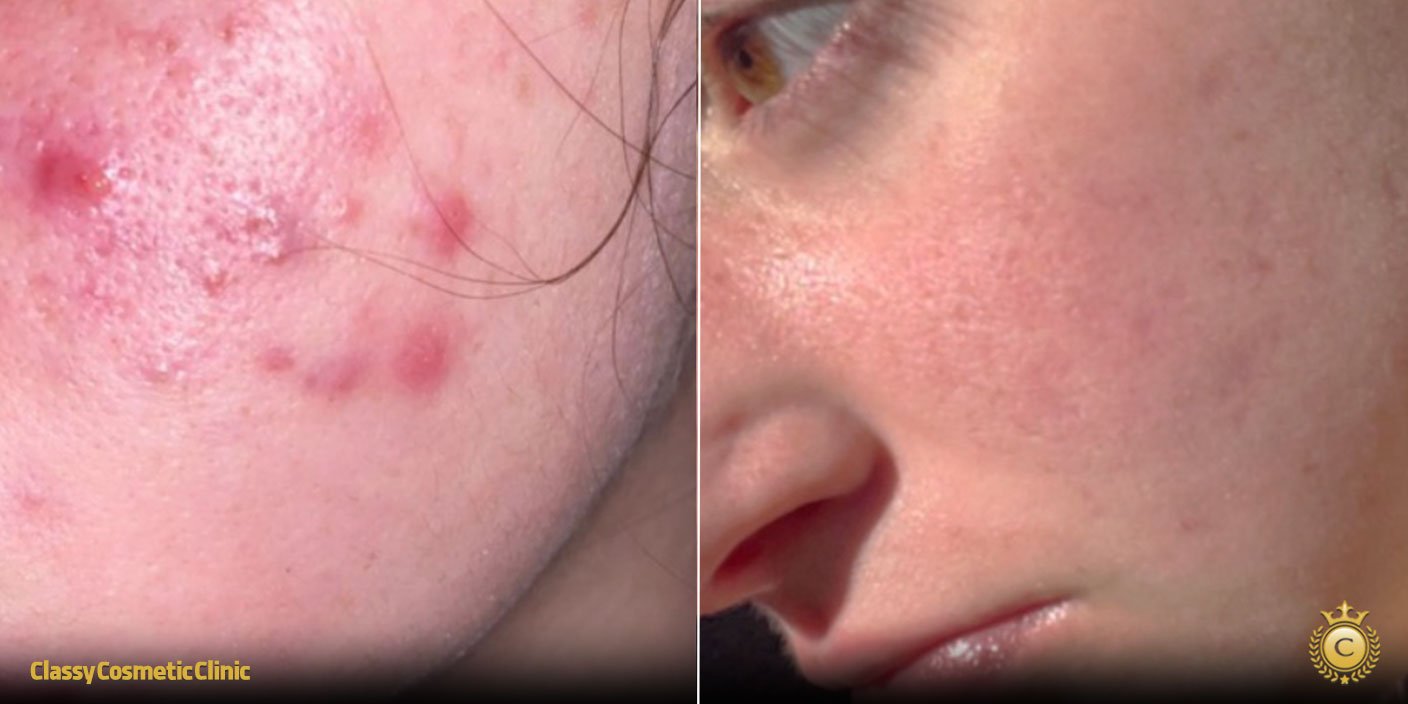
What is Hyaluronic Acid?
Hyaluronic Acid
It is a naturally occurring substance in the body, primarily found in the skin, eyes, and joints. Known for its slippery, gel-like texture, hyaluronic acid helps cushion and lubricate tissues, making it essential for skin hydration and joint health.
Skincare Benefits
In skincare, hyaluronic acid is highly valued for its ability to retain moisture, which can significantly improve hydration levels, smooth out fine lines, and provide soothing relief for dry or sensitive skin types. This makes it a go-to choice in hydrating serums and moisturizers.
What is Accutane?
Accutane (Isotretinoin)
is a powerful retinoid medication prescribed for severe, persistent acne that hasn’t responded to other treatments. Accutane works by reducing oil production and inflammation, offering lasting results that can clear up even the toughest acne cases. It is specifically designed to treat severe acne, including cystic or nodular acne, when other treatments have failed.
Common Side Effects
A key side effect of Accutane is intense dryness and skin sensitivity. Additionally, Accutane is often prescribed to prevent acne scarring in severe cases where other treatments have not been effective. This is where hyaluronic acid can be incredibly helpful, as it provides much-needed hydration without clogging pores, making it an ideal companion for Accutane users to combat dryness and support their skin barrier.
Combining hyaluronic acid with Accutane may ease discomfort, provide vital hydration, and maintain skin softness through Accutane’s challenging treatment process.
For personalized advice on achieving your best skin, consider a consultation at Classy Cosmetic Clinic in Markham, Ontario. Our experts are here to guide you through various skin treatment options and offer insights into botox, fillers, and injectables tailored to help you look and feel your best.
Benefits of Using Hyaluronic Acid on Accutane
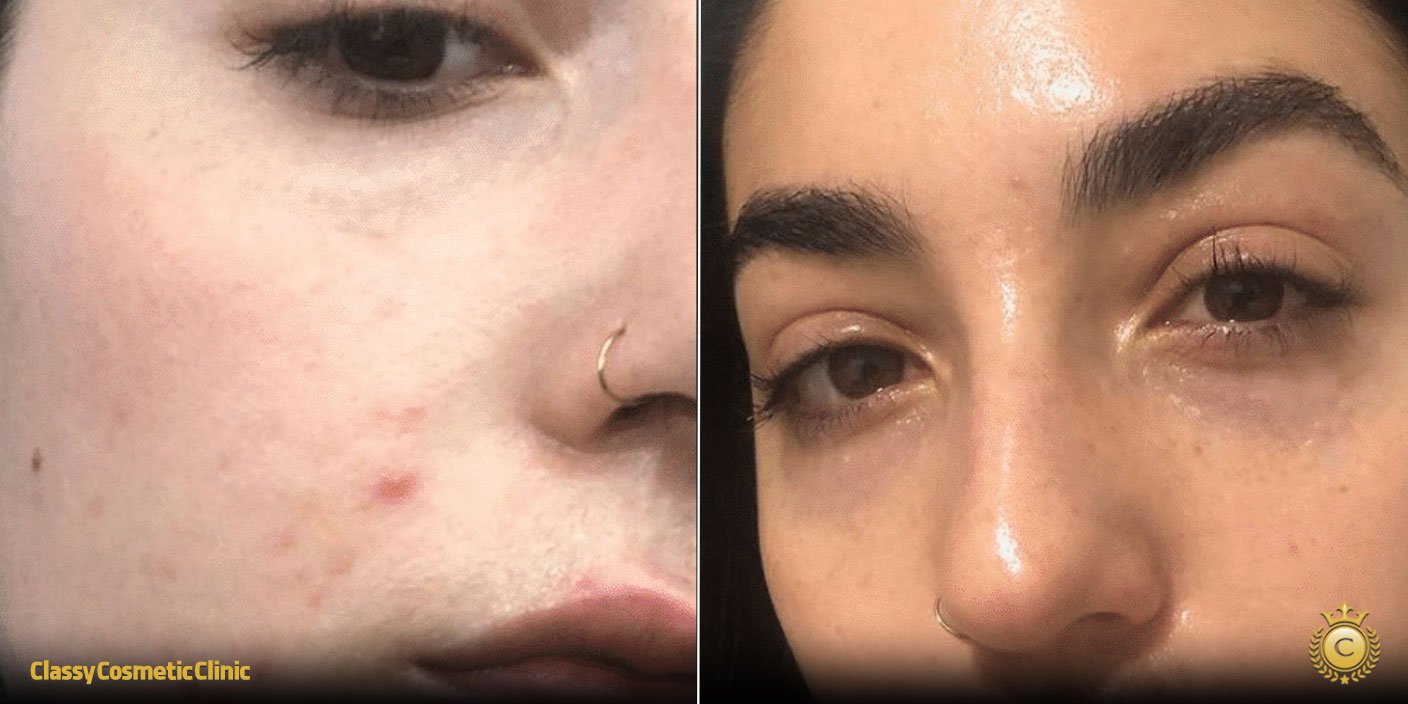
Hydration and Moisture Retention
Hyaluronic Acid is a skin saviour for those on Accutane. Known for its powerful hydration abilities, it draws moisture into the skin, which helps counteract the dryness that Accutane often causes. Adding a hyaluronic acid serum to your routine can make a big difference in keeping your skin feeling hydrated and comfortable. Hyaluronic acid also helps maintain the skin’s moisture barrier, which is crucial for preventing further dryness and irritation.
Skin’s Moisture Barrier Support
Strengthens Skin’s Defenses: Hyaluronic acid helps strengthen the skin barrier, which is essential when on Accutane to reduce the risk of skin irritation and sensitivity. A healthy barrier reduces the risk of irritation, so you’re less likely to experience the sensitivity that often comes with hyaluronic acid and accutane treatment.
Improved Skin Texture and Elasticity
Smoother, Softer Skin: Hyaluronic acid can improve skin texture and elasticity, which is especially helpful for Accutane users who may experience rough patches. By adding hydration and supporting the skin’s natural repair processes, hyaluronic acid helps your skin feel softer and look healthier. This can also aid in the reduction of acne scars, making your skin appear smoother and more even.
Reduced Redness and Peeling
Calms and Soothes: Hyaluronic acid and accutane can lead to peeling and redness, but hyaluronic acid’s calming properties help soothe inflammation and minimize visible peeling. This can leave your skin looking more even-toned and feeling less irritated.
Incorporating hyaluronic acid while on Accutane can be a game-changer, offering hydration and comfort throughout your acne treatment journey.
For more guidance on skincare solutions like hyaluronic acid, botox, and dermal fillers, visit Classy Cosmetic Clinic in Markham, Ontario, for a personalized consultation.
How to Safely Use Hyaluronic Acid While on Accutane
Application Tips
Apply Gently: For Accutane-treated skin, apply a small amount of hyaluronic acid serum on clean, damp skin. This helps lock in moisture.
Layer with a Moisturizer: After the serum, layer with a non-comedogenic moisturizer to keep skin hydrated and reduce dryness.
Use Twice Daily: A morning and evening application keeps your skin consistently hydrated, but always follow your dermatologist’s advice for the best frequency.
Product Selection
Choose Gentle, Fragrance-Free Products: Look for hydrating serums or creams specifically formulated for sensitive skin. Avoid heavy or overly complex formulas—simple hyaluronic acid serums work well and won’t irritate Accutane-treated skin.
Avoiding Potential Irritants
Skip Harsh Actives: While on Accutane, avoid products with strong acids like retinoids, glycolic acid, or exfoliating agents, which can over-sensitize your skin. Hyaluronic acid is safe and mild, making it an ideal choice for moisture without irritation. It can be used alongside other acne treatments to provide hydration without exacerbating skin sensitivity.
Incorporating hyaluronic acid while on Accutane can provide essential hydration without disturbing your treatment. For customized skincare advice, consider consulting Classy Cosmetic Clinic in Markham, Ontario. We’re here to help you keep your skin healthy and radiant!
Managing Skin Types While on Accutane
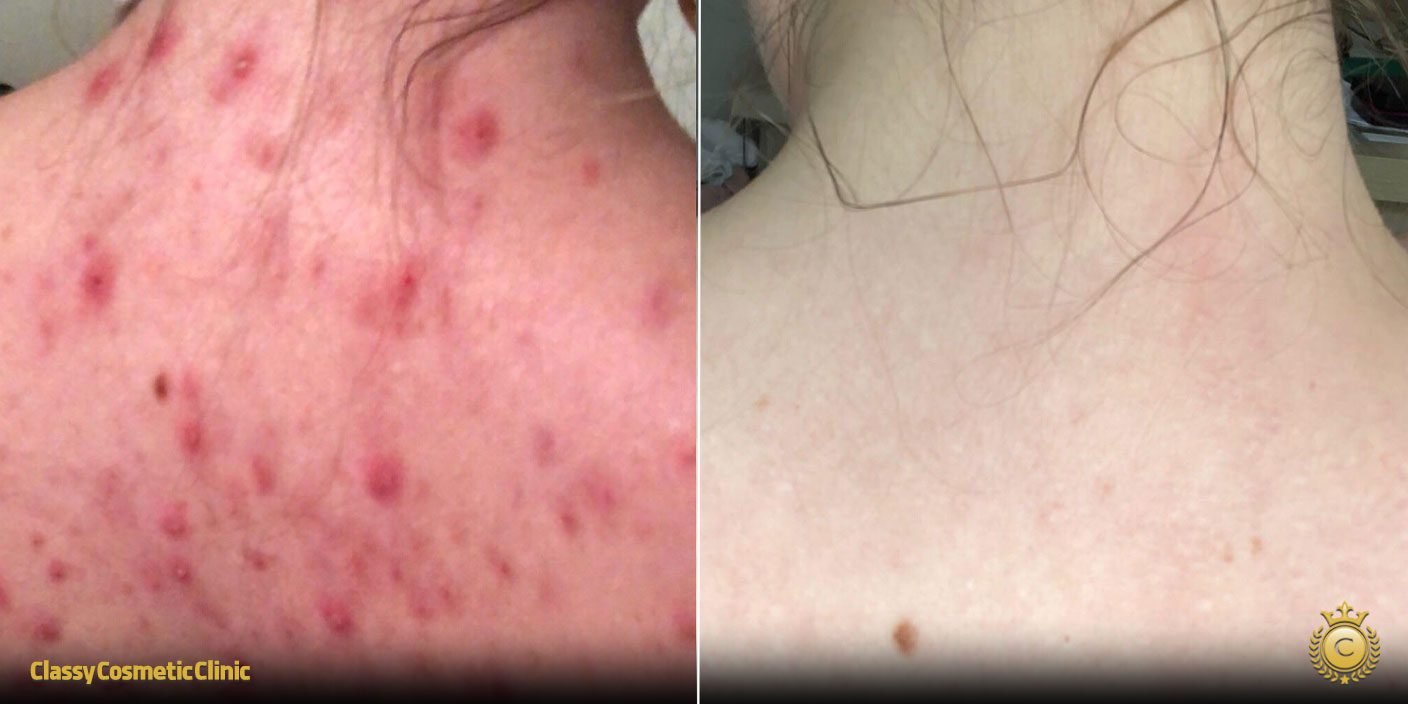
Accutane can affect different skin types in various ways. Understanding how to manage your skin type while on Accutane can help minimize side effects and ensure the best possible results.
Oily Skin
If you have oily skin, you may notice a significant decrease in oil production while on Accutane. This reduction can be beneficial in treating acne lesions, but it can also lead to unexpected dryness and irritation. To manage oily skin on Accutane:
- Use a Gentle Cleanser: Opt for a gentle, non-comedogenic cleanser that effectively removes dirt and excess oil without stripping your skin of its natural moisture. This helps maintain a balanced skin barrier.
- Lightweight Moisturizer: Apply a lightweight, oil-free moisturizer to keep your skin hydrated without clogging pores. This helps prevent dryness and maintains a healthy skin balance.
- Avoid Heavy Products: Steer clear of heavy or oily products that can clog pores and exacerbate acne. Stick to non-comedogenic formulations to keep your skin clear and comfortable.
Dry Skin
For those with dry skin, Accutane can exacerbate dryness and increase skin sensitivity. Managing dry skin while on Accutane requires extra care to keep your skin hydrated and protected:
- Hydrating Cleanser: Use a gentle, hydrating cleanser that cleanses without stripping your skin of its natural oils. This helps maintain your skin’s moisture barrier.
- Rich Moisturizer: Apply a rich, non-comedogenic moisturizer to provide deep hydration and protect your skin from further dryness. Look for ingredients like hyaluronic acid to boost moisture levels.
- Avoid Harsh Products: Avoid using harsh or abrasive products that can further dry out your skin. Stick to gentle, soothing formulations to keep your skin comfortable and hydrated.
By tailoring your skincare routine to your specific skin type, you can better manage the side effects of Accutane and maintain healthy, hydrated skin.
Common Side Effects of Accutane
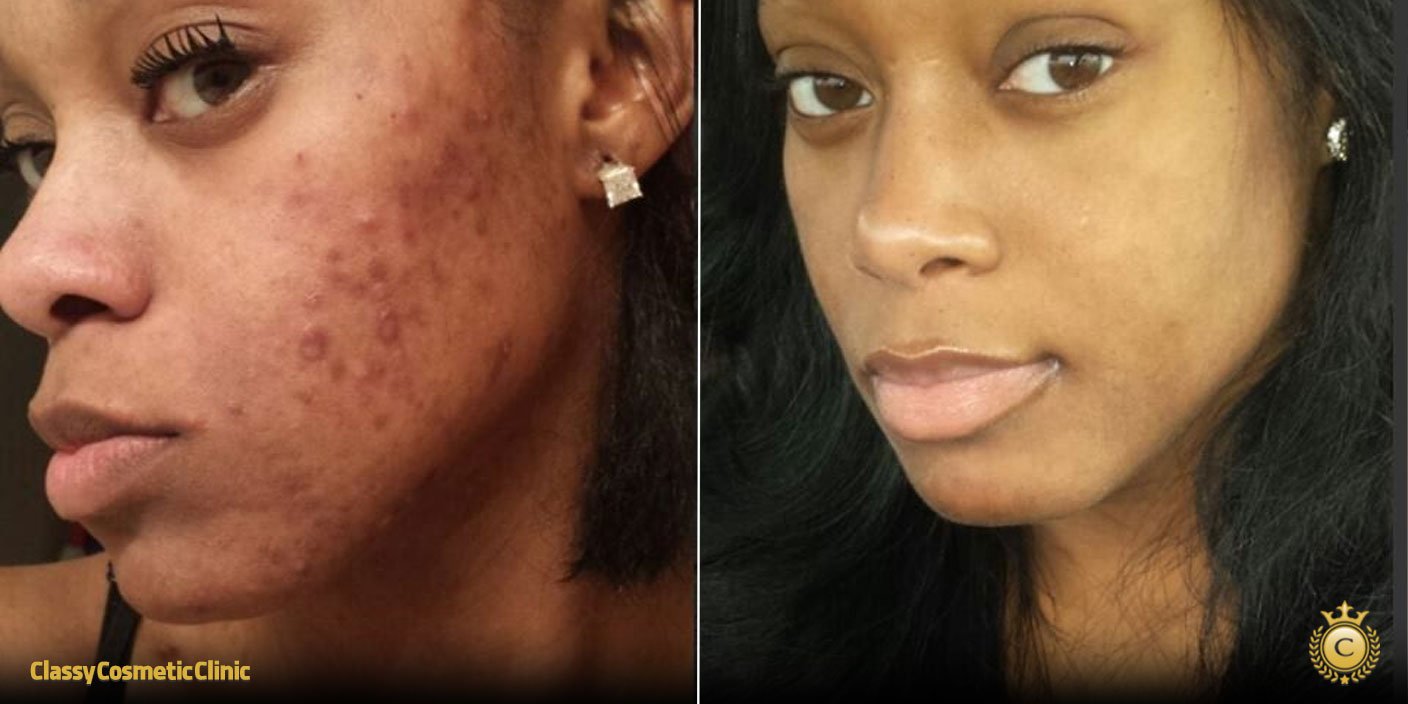
Accutane is a powerful medication for treating severe acne, but it can come with a range of side effects. Being aware of these side effects can help you take proactive steps to manage them effectively. Common side effects of Accutane include:
- Dry Skin and Lips: One of the most common side effects is intense dryness, affecting both the skin and lips. This can lead to flakiness and discomfort.
- Skin Sensitivity and Irritation: Accutane can make your skin more sensitive and prone to irritation, requiring gentle skincare products.
- Increased Sunburn Risk: Your skin may become more susceptible to sunburn, increasing the need for diligent sun protection.
- Joint and Muscle Pain: Some users experience joint and muscle pain, which can be managed with proper care and consultation with a healthcare provider.
- Mood Changes and Depression: Accutane has been linked to mood changes and, in some cases, depression. It’s important to monitor your mental health and seek support if needed.
- Hair Loss and Brittle Hair: Some individuals may experience hair loss or brittle hair while on Accutane.
Understanding these side effects can help you take the necessary precautions to minimize their impact and ensure a smoother treatment experience.
How to Minimize Accutane Side Effects
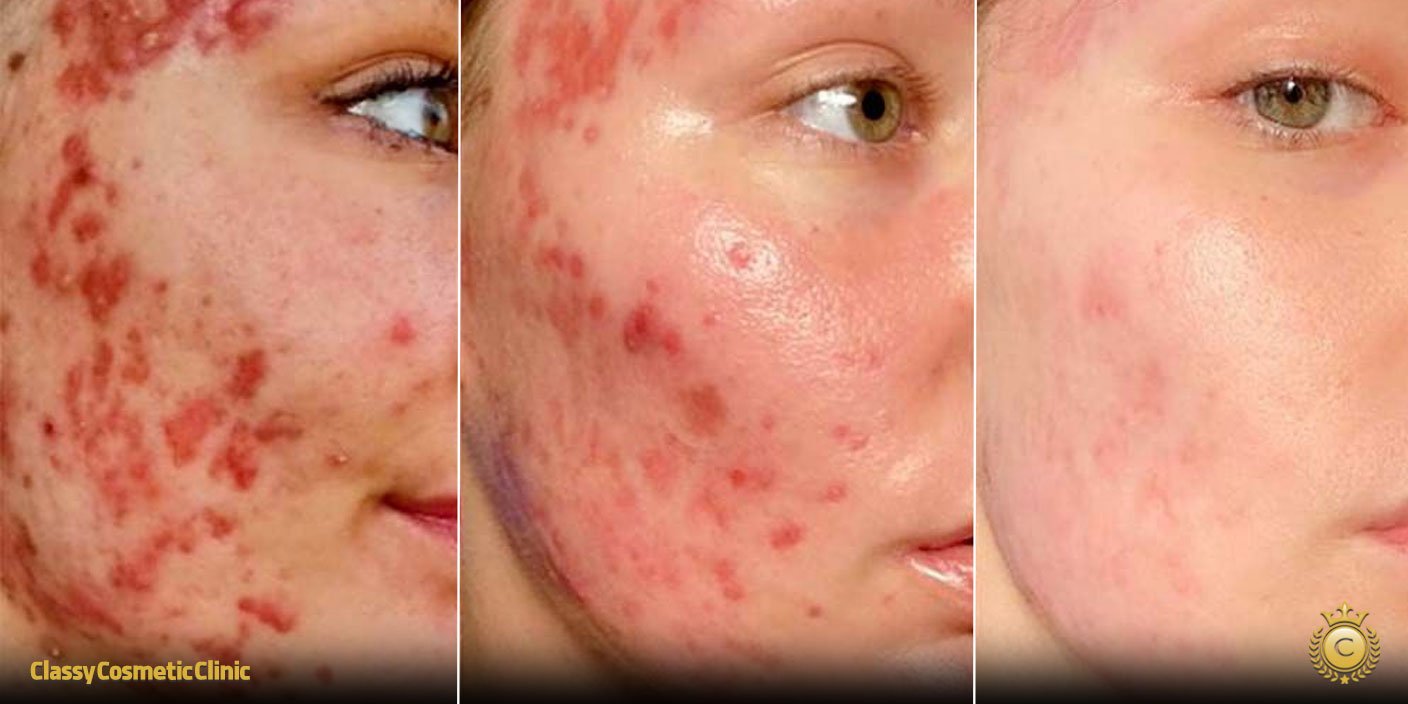
While Accutane can be highly effective in treating severe acne, it’s essential to take steps to minimize its side effects. Here are some tips to help you reduce the risk of side effects and maintain healthy skin:
- Use Sunscreen: Apply a broad-spectrum sunscreen with at least SPF 30 daily to protect your skin from the sun’s harmful rays. This helps prevent sunburn and reduces the risk of skin cancer.
- Hydrating Lip Balm: Use a lip balm with shea butter or hyaluronic acid to keep your lips hydrated and protected from dryness and cracking.
- Gentle Skincare Products: Choose a gentle, non-comedogenic cleanser and moisturizer to keep your skin hydrated and balanced. Avoid harsh or abrasive products that can further dry out your skin.
- Stay Hydrated: Drink plenty of water throughout the day to keep your skin hydrated from the inside out. Avoid excessive caffeine and alcohol, as they can contribute to dehydration.
- Omega-3 Supplements: Consider taking a supplement with omega-3 fatty acids to help reduce inflammation and promote overall skin health.
By following these tips and working closely with your dermatologist, you can minimize the risk of side effects and ensure the best possible results from your Accutane treatment. Remember, personalized advice from a skincare professional is invaluable in navigating your treatment journey.
FAQs on Using Hyaluronic Acid with Accutane
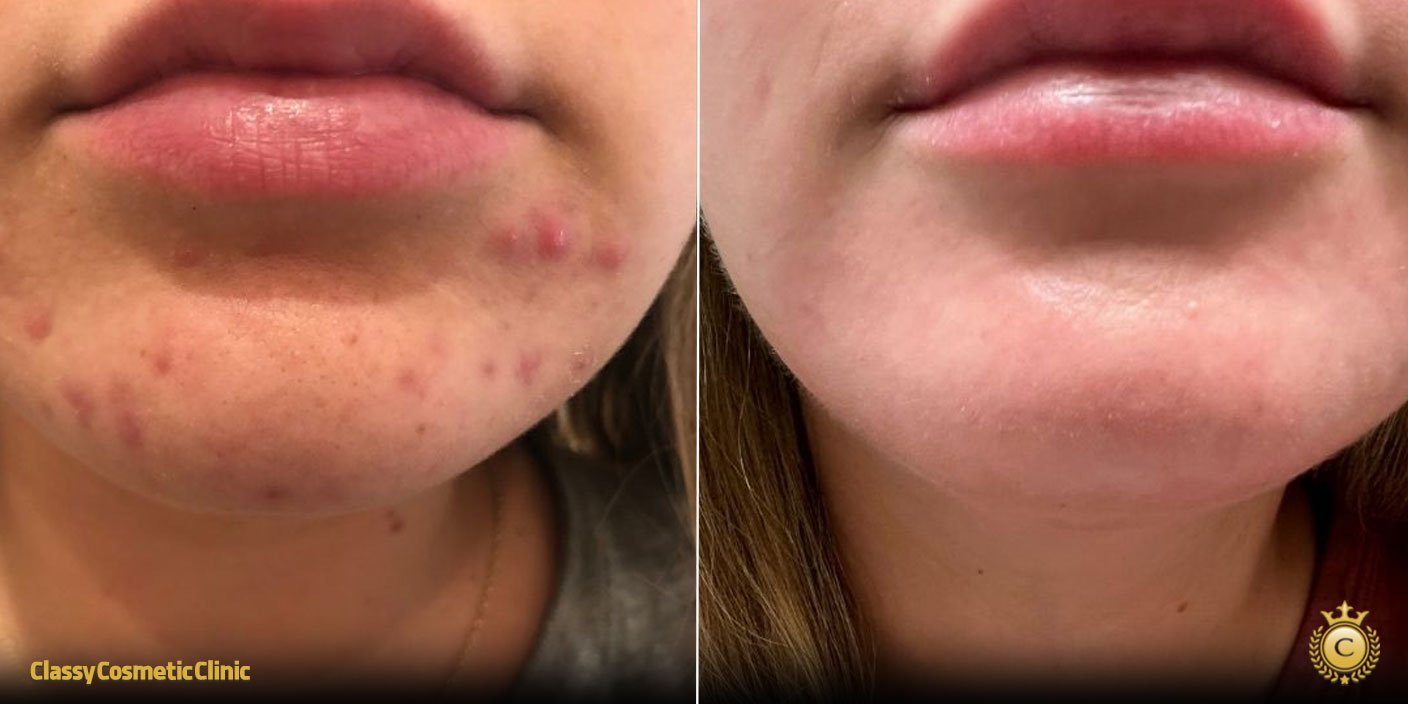
Is it safe to use hyaluronic acid on Accutane-treated skin?
Yes! Hyaluronic acid is a gentle humectant that adds moisture without irritating the skin. It’s widely recommended for Accutane users facing intense dryness.
What are the immediate and long-term benefits of using hyaluronic acid on Accutane?
Hyaluronic acid provides instant hydration, soothing dry patches, and helping with skin tightness. Long-term, it supports a healthier skin barrier, making Accutane side effects easier to manage.
Are there risks in combining hyaluronic acid with Accutane for acne prone skin?
Hyaluronic acid is generally safe and non-comedogenic. The main precaution is to avoid harsh ingredients like retinoids, which can over-sensitize Accutane-treated skin.
How does hyaluronic acid compare to other moisturizers or fillers in hydration?
Hyaluronic acid attracts water to the skin for lightweight hydration, while other moisturizers may add oils or emollients. Facelifts and fillers provide volume under the skin but aren’t meant for surface-level hydration.
Can I combine hyaluronic acid with other treatments, such as botox or fillers, while on Accutane?
Yes, but it’s wise to consult a dermatologist first, especially if planning injectables like Botox or dermal fillers. Hyaluronic acid itself poses no issue, but Accutane may affect skin healing.
Should I consult a dermatologist before starting hyaluronic acid on Accutane?
Consulting a dermatologist is always best to ensure compatibility with your specific skincare needs during Accutane therapy.
When can I expect to see results in hydration or reduced irritation?
Most users see relief from dryness within a few days, with continued improvement as hyaluronic acid builds up skin moisture over time.
Using hyaluronic acid while on Accutane is a safe, effective way to keep skin hydrated and comfortable. If you need personalized advice, Classy Cosmetic Clinic in Markham is here to help!
Comparisons to Other Hydration Options
Hyaluronic Acid vs. injectables and fillers near me for Hydration
While both hyaluronic acid and injectables like injectables and fillers near me can improve skin appearance, they serve different purposes. Hyaluronic acid is a lightweight, hydrating serum that draws moisture into the skin, making it ideal for daily use, especially for those on Accutane.
In contrast, lip botox cost relaxes muscles to reduce wrinkles, and injectables and fillers near me provide volume, but they don’t hydrate the skin in the same way.
Hyaluronic Acid vs. Regular Moisturizers on Accutane
Unlike regular moisturizers that often contain oils or occlusives, hyaluronic acid is a powerful humectant. It can hold up to 1,000 times its weight in water, providing deeper hydration without clogging pores. This makes it especially effective for those experiencing dryness from Accutane, helping to restore skin moisture levels more efficiently than basic moisturizers.
Cost Considerations
When comparing costs, hyaluronic acid serums tend to be more affordable than professional treatments like Botox or derma filler near me. For Accutane users seeking hydration, hyaluronic acid is a budget-friendly option that delivers results without breaking the bank.
Incorporating hyaluronic acid into your skincare routine while on Accutane can enhance hydration significantly, providing a simpler and more effective solution compared to other options. If you have questions about your skincare regimen, feel free to reach out to us at Classy Cosmetic Clinic!
Hydrated & Healthy: Using Hyaluronic Acid with Accutane at Our Markham Cosmetic Clinic
Managing the dryness and sensitivity from Accutane treatment is easier when you integrate hydrating ingredients like hyaluronic acid into your skincare routine. This powerful humectant draws moisture into the skin, helping to soothe irritation and maintain a healthy barrier while you combat severe acne. At Classy Cosmetic Clinic, our expert team can tailor your regimen to ensure that hyaluronic acid works harmoniously with your Accutane treatment, supporting effective skin rejuvenation Markham Ontario even during challenging treatment phases.
For personalized advice on achieving balanced, hydrated skin during Accutane therapy, trust our renowned Markham cosmetic clinic. Whether you’re searching for a cosmetic clinic near me in Markham or the best cosmetic treatments Markham has to offer, our specialists are dedicated to creating customized skincare plans that deliver noticeable results. Embrace a smoother, more comfortable treatment journey by consulting with our experts today!

Final Thoughts On Hyaluronic Acid and Accutane
- Recap on Hyaluronic Acid and Accutane
Using hyaluronic acid while on Accutane is safe and beneficial for keeping your skin hydrated. This powerful humectant can help counteract the dryness often associated with isotretinoin treatment, making it an excellent addition to your skincare routine. - Benefits and Precautions
The key benefits of hyaluronic acid include its ability to attract moisture and improve skin texture. To maximize hydration and comfort:- Choose a quality HA serum that suits your skin type.
- Apply it on damp skin for best results.
- Always patch test to ensure it works well with your unique skin needs.
- Consult a Dermatologist
If you’re experiencing significant side effects from Accutane, don’t hesitate to consult a dermatologist. They can provide personalized advice tailored to your skin condition, helping you navigate your treatment safely and effectively.
Incorporating hyaluronic acid into your regimen can make a world of difference while on Accutane. Remember, healthy skin is beautiful skin! If you have any questions, feel free to reach out to us at Classy Cosmetic Clinic.

